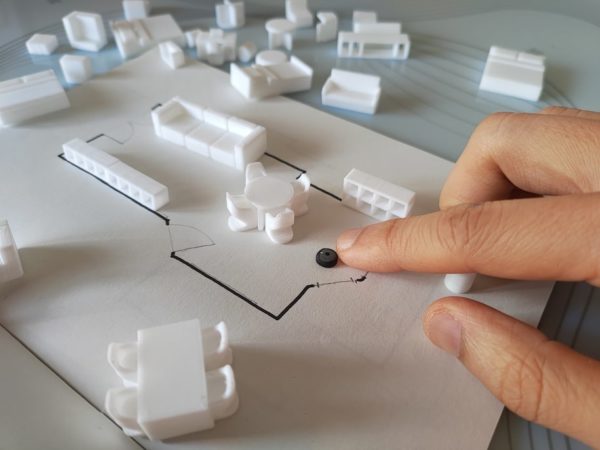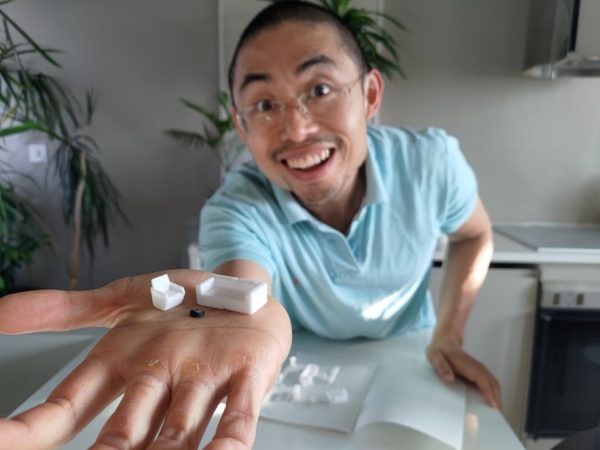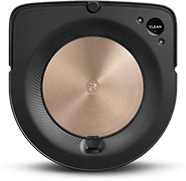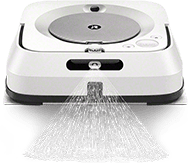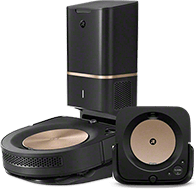Feng Shui Living Room Tricks for Positive Vibes
Is your love seat or couch not against a wall? Not sure where it’s supposed to go if you want to invite peace and bring good luck and a balanced flow of energy to your home? Or, just looking for some living room ideas?
There are no hard and fast feng shui rules, and that’s what makes it so interesting, yet so challenging.
It may seem intimidating now, but Feng Shui expert and Chinese social media influencer, Cliff Tan, from Dear Modern, came to help us demystify how to arrange your living room for positive chi, with Feng Shui.
Feng Shui Principles
True Feng Shui is an art.
It’s an ancient Chinese art of arranging buildings, objects, and space in an environment to achieve harmony and balance. With living room furniture, it speaks to the design in its entirety. How the whole house flows together, including your bedroom’s feng shui.
According to Cliff, “Over the years, Feng Shui has developed an air of mysticism or even superstition, when in reality it’s just about how you build a home. It’s just a tool. It’s just an industry… If you want light– but they call it energy– put in a window. If you want to sit in the energy, sit closer to the window. If you want to walk past more energy, you walk past a window.”
This speaks very clearly to the build of the home and how it should function to capitalize on the intended use of each space.
But while Cliff removed the veil of mystery and recognizes it as an architectural tool, he also points to Chi and energy flows.
Chi: Positive energy vs Negative Energy
Chi, in Chinese, means “air”.
The western world has altered that to mean energy, but the “air of the space” is its true meaning.
“It’s really about how we feel things, and how we apply them, as normal human beings, within our homes.”
In a Feng Shui home, everything should make sense. That’s the entire purpose of it. If it doesn’t make sense, it’s not worth listening to.
Think about it this way:
Energy is all the things in your room. All of your furniture, your plants, your clothes…
Now, imagine if we took all of that away and had you sit in a blank room with four walls.
If we started poking holes in the room, the fresh air and light come shining in and we can see the outside world.
“There’s light, there’s an outside world… That brings in energy in many forms– light, breeze, potential, a knowing of the world that exists. Now, a door. If it’s closed, you know someone has the potential to come in.”
Cliff also brings in the example of your Roomba robot vacuum entering the room. It’s getting slightly louder as it gets closer so you know it’s on its way, but it brings you a sense of calm because you know it’s cleaning your space.
That’s a nice energy, in a sense.
Good Feng Shui requires fresh, clean indoor air. So make sure you have an effective air purifier.
Balancing the Five Elements
In Chinese culture, and Feng Shui, a triangle represents the fire element, a circle represents heaven, a square represents Earth, the wave represents water, and angular shapes represent the wood element.
Now you may be thinking “Awww, now I want to make everything round in my home”.
“But you don’t want heaven, heaven, heaven… you’re not living in space. You need some Earth. You need some balance.” (Not everything can or should be as round and heavenly as a Roomba® robot *wink wink*)
In other words, you shouldn’t let any one element overpower your home. Bring in various shapes that balance each other.
Sharp Corners vs Round Shapes
In the art of Feng Shui– and much of Chinese culture– there’s an avoidance of aggression and displaying that aggression, Cliff explains.
“Blades, knives, big plants, big creatures… having them on display is seen as aggressive… If you go to a hunting lodge and they have all those animal heads and all the guns on display, you would say ‘okay, this is not where I want my kids to spend the weekend.”
Sharp angles are not only considered a bit aggressive in interior design, but they’re also not functional.
“You’re not going to sit at the corner of a table. It’s pointy and aggressive. Curves around the home take away anything like that happening.”
Feng Shui Living Room Decor Must Dos
We know that it feels a bit awkward if you’re sitting in a room and there’s a door behind you. Someone could walk in and you wouldn’t know. It naturally feels strange to us.
So, while there are no hard and fast rules, and how you Feng Shui a living room layout looks different for each individual, there are still a few general feng shui living room tips to make it a comfortable place.
DO: Prioritize Function (Over Fashion)
You always need to consider the function of a room over the pieces in it already.
If the main function of the room is to sit on the couch in front of the TV, then the couch needs to be in the command position (we’ll get into what that means in a bit).
If the main function is to visit with family and friends and entertain, then seating should be facing each other.
But if you’re using your living room as a home office, prioritize that instead of stuffing it in a corner.
If you do stuff your office in a corner, make sure you’re not looking out at the entire living room to keep distractions low. When you’re working around too much space– especially with a lot going on around you– it makes it harder to center your mind and concentrate.
DO: Analyze each piece of furniture and the furniture placement
Always start your layout with the biggest items in the room. For most homes, that’s generally the couch and coffee table.
Again, where you position the couch depends on how you use it. But generally, it is best to have it against your living room walls with a good view of the living space.
Other items, like mirrors, a piece of art, and home decor, must also have careful consideration.
Mirrors amplify light and movement.
If you have a small room or a dark room, you can place a mirror in such a way that it retracts what little natural light you have.
This will make the space brighter and feel larger- if that’s what you’re hoping to bring to the space.
DO: Choose a Meaningful Room Color
For a long time, people thought white was the color of calm. It’s blank, right? So it is not busying our brains.
But in reality, neutral, earthy tones that are a bit warm bring us the most peace and sense of well-being.
Maybe you don’t want that though.
Maybe your living room is a fun and active space. Then a more energetic color may suit your room’s function and your emotions in that space better.
Contribute to your complete well-being. Keep your home’s temperature regulated.
How to create the perfect feng shui living room layout
Feng Shui is ingrained in all of us. It’s an instinct. The challenge is recognizing it and realizing how much it impacts our lives– by creating spaces that function better and make us feel certain emotions that we should have in the space.
It’s not about the rules. It’s about you.
With that in mind, a living room design will be different for each person.
Declutter your home
For most people, it is hard to feel relaxed with clutter around. It is possible to declutter quickly and effectively.
When there is too much going on, and too much for the eyes to focus on, it overloads the brain.
Identify the command position and focal point (It’s OK if it’s your television)
Knowing all the energies in the room, you want to sit in the best possible place to absorb all the view and absorb the energy (or protect yourself from the bad energies).
This position is called the Command Position.
This position should be across from your focal point, as that is where you draw most of the room’s energy.
But keep this in mind:
The position of your seat should be closest to the wall, where no one can come up behind you.
This protects us from that sense of unease and unknowing of what’s behind us.
Keep your home clean and decluttered. Use our house cleaning checklist.
Add Plants and Wall Art
Plants represent life, and well, that’s precisely what a living room is for. It’s a space where the activity happens, where there is excitement and energy. But it is also a place to relax and unwind, for many.
By adding the right potted plants (big, bushy, tropical plants vs small, viney, or colorful plants) you’re aligning with the nature and use of the space.
Choose a piece of art that speaks to you, that calms you. Every piece of art in your home should have a personal meaning, and fit with the mood of the room it occupies.
FAQ
Which direction should my couch face?
In most homes, the couch should face the focus point of the room (which is usually the TV).
But if you can also place it to face the front door or entrance to the room, that is better.
It’s not just welcoming, but it reduces any fearful instincts.
Where should a TV be placed in a living room with feng shui?
While there’s no definitive answer to this, there is, however, one rule. Don’t let the tv overwhelm the space.
Look, TV varies in degree of importance for each person. Where you put your TV will be different from someone else, even in the same room, because of that degree.
What is bad feng shui for a living room?
While this greatly depends on the build of the space and how you use it, you generally don’t want your couch to face away from a door or entryway.
Instead, when your couch or sectional is against a solid wall with a great view of the room, it allows you to soak in the atmosphere.
Or, if you face your couch or seating towards an entryway, it can feel inviting or welcoming to guests you bring to your home.
Another no, no, is placing your giant TV in a position where it overpowers the rest of the space. If it is very large and the rest of the space is not proportionate, you may want to consider putting it in a corner where it’s less intrusive.
Cliff also notes that having your office in your living room is generally bad Feng Shui because it impedes your concentration and mixes two room functions.
But, he gives concessions to those with small living room space to use.
Where should I place my Roomba® robot vacuum?
According to Cliff, “you should ask your Roomba… It is like a pet. You don’t tell your pet where to sit. They determine where they want to be. You see where the Roomba likes to be. What it likes to do. The Roomba likes to eat. It’s hungry. It wants to eat dirt. So you put it where all the dirt is. You place it where it makes the most sense.”
A Roomba robot vacuum is like your TV or your refrigerator. It has a function. Good Feng Shui capitalizes on the function of your equipment while carefully planning out its placement and path.
For most people, the best place to put it is in the living room, where it can run at night without disturbing sleep and have the space clean for use the next day.
Then, throughout the day, it can work in spaces you’re using less frequently, like your bedroom.
In a way, it’s always as if your Roomba® robot vacuum understands Feng Shui, working with your flow!
“But it is still a source of good energy and life… you see how that affects you… Put it in a place where it affects you least or where you feel best about it.”
Where ever you do choose to put your little buddy, be sure it is always set up flush against a wall that is not obstructed by objects nearby. Here’s an article for some extra guidance.
Where should I place my Braava® robot mop?
A Braava® robot mop, for most people, is best placed in your kitchen or mud room– heavily trafficked areas that generally need a clean-up each day.
Just like with a Roomba® robot vacuum, place your Braava mop’s Home Base® in an open, uncluttered area, on a level surface, and against a wall.
More About Dear Modern
Cliff Tan started Dear Modern in 2016 as an architectural practice with a focus on Feng Shui but for the everyday person rather than the elite and wealthy that western Feng Shui often caters to.
He has over 15 years of experience in both planning and optimizing spaces, and seeks to transform more spaces around the world. We hope his living room tips and this article, will help you transform yours too.

